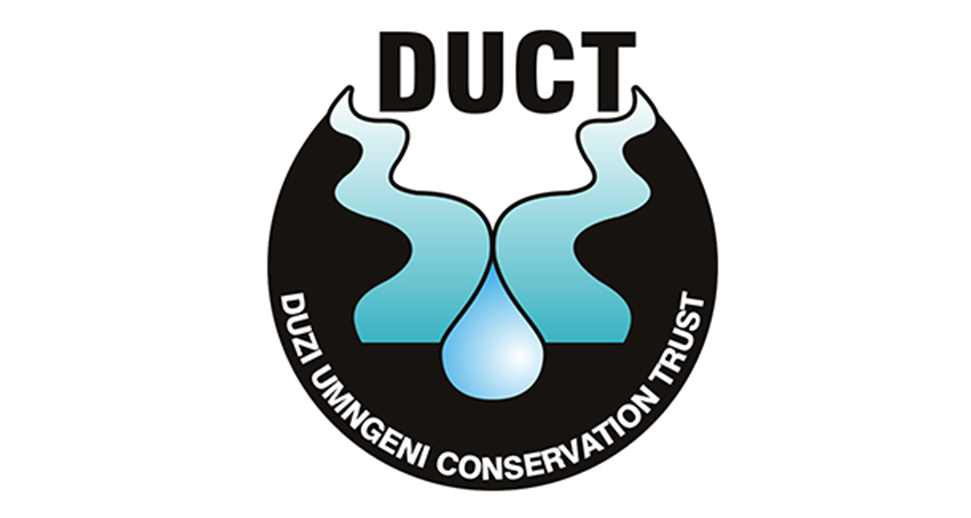Pollution is everyone’s problem.
It requires all hands on deck instead of everyone looking to a few to keep our rivers free of the rivers of waste that compromise water quality.
This is what Imbali’s Sanele Vilakazi tries to preach to everyone he meets with hopes that they will play their part in keeping rivers pollution free.
Vilakazi is a pollution control officer with the Duzi-uMngeni Conservation Trust (Duct), where he is the project manager for the sewer line discharge as well as the general river pollution monitoring and maintenance programmes.
He said Duct’s mission was to champion the environmental health of the Msunduzi and uMngeni rivers. They cover more than 40 000 sewer lines and also monitor rivers for signs of industrial pollution and disturbance.
“Most people, especially in townships, take it for granted that water is a natural resource so there is an assumption that it will always be there but they don’t consider that their actions are compromising its quality.
“There might come a time where it will become too difficult to treat [water] to a potable standard,” he said.
The 28-year-old said more programmes like Duct’s were needed to make people aware of the consequences of their actions — even simple things like littering. He said communities needed to learn about the ripple effects so that they will be more conscious of their environment.
“When you go out and engage with communities you realise that some of the things they do are not intentional, they just didn’t know. So we need to empower them with the necessary knowledge so that they can change the way they do things.”
Vilakazi bemoaned poor waste management practices across cities like Pietermaritzburg and Durban saying illegal dumping was rife and people also used open sewer manholes to dispose their refuse. He said there was also an ongoing problem of sewage spills and leaks, which were sometimes left unattended for days.
Vilakazi’s worst nightmare is that one day the water in the Msunduzi River would be untreatable.
“We have to do something now because we are heading for trouble. We mustn’t wait until there is a natural disaster or water becomes too expensive to treat before we act,” he said.
While they are slowly making headway in fighting pollution, Vilakazi said one of Duct’s other big challenges were illegal sand mining activities.
“We are not against people getting sand because we know that it’s needed for construction purposes, but we have to make sure that it’s done in a sustainable manner and that’s often not the case with the illegal operators.”
He said their actions had led to loss of lives as they not only altered the course of the rivers — which led to flooding — but also failed to rehabilitate the areas they worked in.
“They leave deep trenches and we’ve had cases where children drowned while swimming … There are so many of these sites along uMngeni Valley and we are really struggling to keep up because they jump from site to site to avoid getting caught.”
He said the government needs to invest more resources in the monitoring and enforcing the law when it comes to sand mining to deter the illegal operators. “Those caught need to be brought to book because delaying justice favours them so they just continue degrading our rivers.”
Who is Sanele Vilakazi?
Sanele Vilakazi holds a B.Sc in geography and environmental management from the University of KZN and is working towards an honours degree from Unisa.
Prior to joining Duct in 2013, Vilakzi worked in a diverse range of environmental industries from consultancies to local government and also gained experience working at Msunduzi Municipality after completing his studies in 2012.
He loves football and previously played for Edendale’s Special 11 but now coaches youngsters who are interested in the sport.
If Vilakazi were to have a conversation with his 13-year-old self, he would tell the teen to be more open-minded and willing to learn.
“I would tell him to also open his heart to other people so that he would be able to work with everyone he comes to meet.”
He said he would advise him not to run away from difficult situations but use them to learn because “even failure carries a great lesson”.
“When you face difficulties head-on you become stronger, it sharpens your thinking and tact for dealing with similar situations in future because life will not always be easy.”
Seven things Duct does for river health
1. Reduce industrial pollution
Duct lobbies for more extensive and intensive monitoring of industrial pollution in the river. Duct teams and volunteers provide eyes on the ground to assist the authorities to pick up new instances of industrial pollution as soon as possible.
Changes to the municipal bylaws are required to make it more difficult for certain industries to get away with using the sewers and stormwater drains to dispose of excessive amounts of toxic substances.
2. Removal and control of invasive alien vegetation
Duct has significantly reduced the riverside infestations of bugweed, balloon vine, water lettuce, water hyacinth, lantana, syringa, wattles, gums and others. They do this using a combination of physical removal, herbicides and biological control, and work closely with the Department of Environment Affairs and Umgeni Water.
3. Increase flows in rivers
Duct lobbies for the implementation of the environmental flow provisions in the Water Act of 1998, which have not yet for various reasons been implemented in the uMngeni catchment.
4. Regulation of sand mining
Duct has tried over the years to engage with the Department of Mining to improve the monitoring and regulation of sand mining activities in the Duzi and uMngeni valleys. They have had more success with the Department of Water Affairs and Environment Affairs, as well as with the eThekwini Metro, all of whom are also trying to limit uncontrolled mining.
5. Improve land care and reduction of soil erosion
Duct has a programme of improved land care and soil erosion prevention in the upper Msunduzi catchment, and has also implemented erosion control measures along the route of the Guinea Fowl portage in the Devil’s Cauldron section.
This work will be expanded if funding can be sourced from the likes of the Department of Environment Affairs Working for Soil programme. Unless land care in the catchment can be improved, siltation of the rivers and the dams will proceed at an excessive rate.
6. Investment in communities
Duct’s work over the years has resulted in employment opportunities with more than R10 million paid in salaries in the communities which live along the Duzi and uMngeni rivers.
Approximately 300 people have been employed in various aspects of environmental work; from alien plant control to erosion protection, mountain bike trail building and litter removal. A number of supervisors have also been employed from these same communities.
7. Bilharzia reduction
One of Duct’s long-term goals is to reduce the incidence of Bilharzia in the UMngeni River and surrounding communities.
Take ownership of your spaces
Vilakazi said it was easy for people to shift blame for issues related to waste management to government yet they themselves did nothing to protect their spaces.
He used public parks as an example saying patrons often left their litter scattered around when they were done with their activities.
“There is a lack of responsibility because the bins are often there but they just don’t bother to put it in there.”
He said neighbours could also come together and clean their streets instead of waiting for the municipality to send someone. He said people must also do away with the mentality that littering created employment opportunities for waste pickers.
Vilakazi also said people must start thinking about the legacy they want to leave for future generations instead of depleted natural resources and filthy public spaces.
Funding
Duct, like other non-profit organisations, is always faced with a risk of not being able to fund its river care and environmental programmes due to inadequate funding. While they get some assistance from government, Vilakazi said the private sector had not fully come on board. “There are a lot of things that businesses could help us with such as trash booms and storm water drain socks because that allows us to stop waste from travelling downstream as it collects it at intervals along the river,” he said.
A trash boom costs in the range of R20 000 and Vilakazi said Duct needed at least 200 to cover 380 kilometres of the Duzi and uMngeni rivers.





































